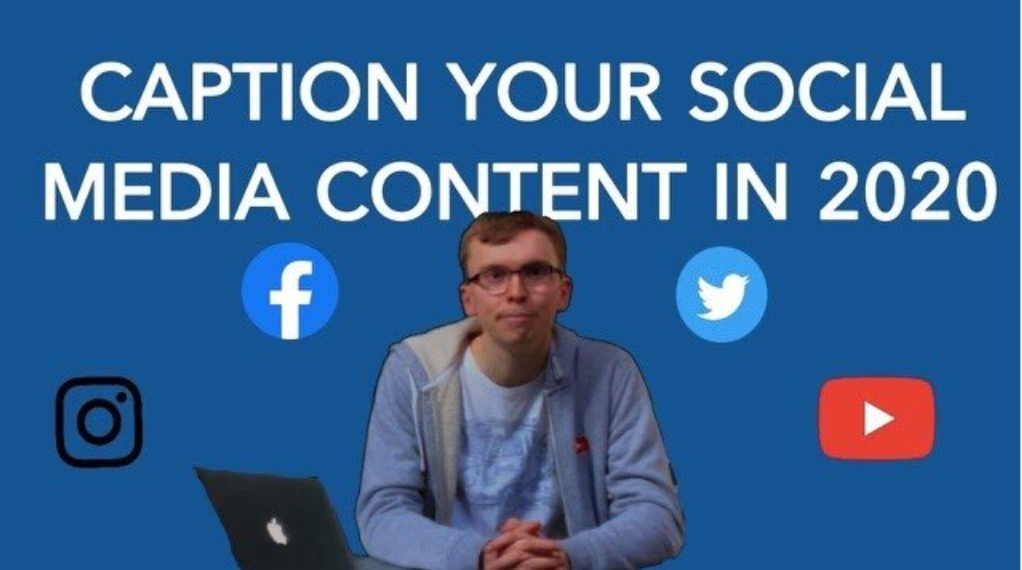Liam O’Dell Talks Captioned Content Campaign, CC Me In
)
It was more of a resolution than a revolution. As the clock struck midnight on 2020 and a new decade, I knew I wanted to up my campaigning as a deaf young person in the next 10 years. The solution was to launch a campaign around getting everyone to commit to captioning their online content in the next 12 months. Its name is CC Me In.
After all, whether we’re disabled or non-disabled, we’ve all been in one particular situation. We find ourselves on public transport, perhaps without our headphones, unable to play a video out loud due to the unwritten rule about being absolutely quiet in your seat. If it had captions, it could be watched in silence, but it isn’t. Instead, a funny Facebook is mentally bookmarked to watch later – if we can remember.
The statistics back it up, too. Over 85% of videos on Facebook are viewed without sound and that means it’s more than just deaf people like me who benefit from subtitled content. Therefore, if you haven’t made plans to already, then you should definitely consider captioning your online videos.
How? I hear you type into your keyboards (not really). Well, a few weeks into the campaign, I shared a resource on Instagram about how to caption content on Facebook, Twitter, Instagram and YouTube. Earlier this month, I followed it up with a video tutorial so you can see the steps you need to take.
The steps in question aren’t exhaustive, either. I still see and hear people bemoaning subtitles as burdensome to watch (despite research suggesting they can actually improve literacy) and to online content. However, voice recognition apps do a good job today and even when it needs to be done manually, the rewards that come from making your content more accessible to more people are countless. It can certainly boost engagement, which is always nice.
The plan with CC Me In now is to keep the ball rolling and continue spreading the word around online accessibility. So if you haven’t already, do get involved using the hashtag #CCMeIn.
I’ve been having some interesting conversations with individuals in the past few weeks around captions, and it’s been great to see the hashtag being used by others on sites such as Twitter to point out inaccessible videos and encourage companies and users to caption their content in 2020. After all, as I’ve said a few times already this year, accessibility benefits everyone.
Chances are you’ll probably hear me chatting about this very subject at some point during my panel discussion at this year’s Naidex. Chaired by Natasha Lipman, I’ll be talking all about disability blogging with friends Shona, Pippa and Chloe.
Article Courtesy of Liam O'Dell


